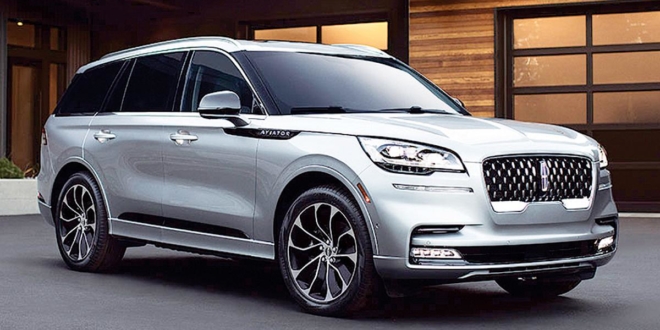
2020 Aviator Grand Touring: Lincoln is emphasizing the plug-in’s performance.
LOS ANGELES — Lincoln Motor Co. isn’t following other brands’ lead when naming its upcoming plug-in hybrid vehicles.
Instead of using an unfamiliar acronym or attaching an “e,” it’s turning to history with a name made popular by European sports cars from the 1950s: Grand Touring.
Starting with the 2020 Aviator, on sale next summer, Lincoln will adopt the Grand Touring name for its electrified variants in an effort to emphasize their performance capabilities, prevent customer confusion and avoid any stigma associated with electric powertrains.
Officials from the brand, which recently killed its confusing “MK” naming convention in favor of actual words, such as Aviator and Nautilus, said they don’t want to confuse customers with an alphabet soup of letters or strange words that don’t directly say what the vehicle is. The Lincoln marketing teams spent countless hours debating what to call the vehicles before settling on Grand Touring, Robert Parker, the brand’s marketing chief, told Automotive News.
“Quite simply, it came down to, what does it do? And what it does is that it makes the vehicle more exciting to drive,” he said. “It’s the purest definition of Grand Touring.”
The Aviator Grand Touring will contain Lincoln’s most powerful powertrain. The electric motor paired with a 3.0-liter twin-turbo V-6 engine will generate 450 hp and 600 pound-feet of torque, a step up from the gasoline-only version’s ratings of 400 hp and 400 pound-feet of torque. Lincoln wants to make sure people know that distinction and don’t think of the electrified model as just an eco-friendly gas-sipper.
“When we do the research, rejecters of the technology are afraid they’re giving up power,” Lincoln President Joy Falotico said. “We took that very seriously.”
The plug-in hybrid model will have two new drive modes: Pure EV, which uses only the electric motor, and Preserve EV, which uses only the internal combustion engine. After revealing the vehicle last week at the Los Angeles Auto Show, Lincoln executives declined to disclose the expected battery range or other mileage figures, although chief engineer John Davis said it will likely get at least 31 miles of electric range, specifically in China.
“It’s got the power to launch when you want, but it can also propel the vehicle very quietly and effortlessly,” Parker said. “Everything just intersected nicely.”
Parker said the team tested a number of names with customer focus groups, including variations of the letter E, along with numerous words, although he declined to give specifics.
“Consumers may have liked the word but didn’t know what it meant,” he said. “If I have to go spend money to describe to customers what a new word means, I’ve taken money away from promoting Aviator.”
Executives hope Grand Touring can do for Lincoln electrified vehicles what EcoBoost did for Ford’s turbocharged engines: popularize something customers have not yet widely adopted.
“You can talk yourself into these letters and conventions, but when you go out into the consumer space, they’re very confused,” Parker said. “EcoBoost wasn’t new; direct-injection technology was around in the late ’80s, but nobody seemed to find the magic until EcoBoost.”
